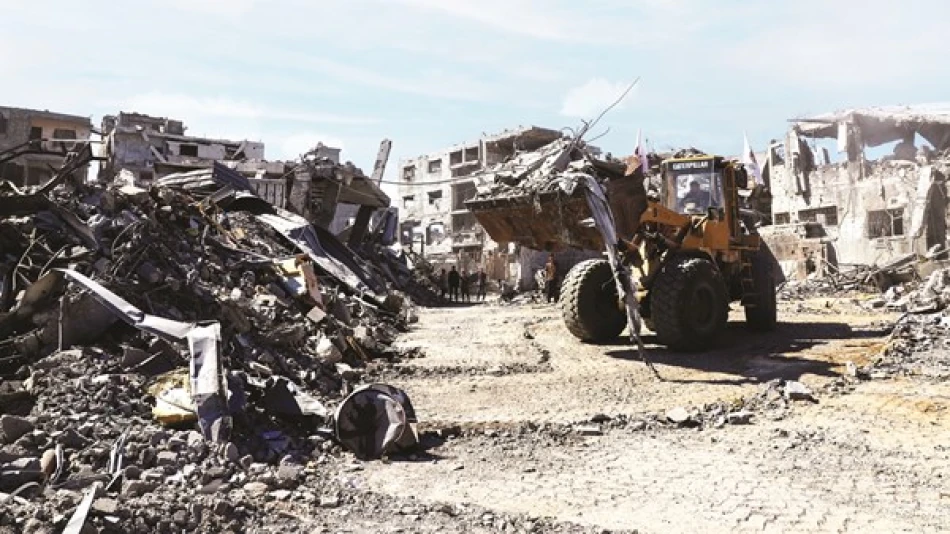
UN: $70 Billion Needed to Rebuild Gaza After Devastating Conflict
The UN Development Programme estimates that rebuilding Gaza will cost around $70 billion, with $20 billion needed in just the first three years. This massive price tag reflects the unprecedented destruction across the territory, where 84% of all buildings have been damaged or destroyed.
At a Geneva press conference, Jaco Cilliers, the UN special representative for Palestinian assistance, laid out the staggering scope of the challenge. The war generated about 55 million tons of rubble. In northern Gaza, the destruction rate jumps to 92%. Around 425,000 housing units are damaged or completely destroyed.
These numbers come from a joint assessment by the UN, European Union, and World Bank. But clearing the debris isn't just about moving concrete and steel. UN teams have already found three bodies while removing rubble, highlighting the human tragedy buried beneath the destruction.
So far, the UN has cleared 81,000 tons of debris, focusing on opening roads for relief teams and cleaning hospitals and social services. They've managed to recycle 13,200 tons of processed rubble for road repairs and temporary shelter floors. But unexploded ordnance makes every step dangerous for both relief workers and residents.
The cleanup follows three phases, starting with less risky areas like roads and hospitals before expanding to more dangerous zones when conditions allow. UN mine action teams work with project services to map explosive remnants and mark hazardous areas.
Money is starting to flow in. Cilliers noted positive signals from Arab donors, international institutions, and European partners. The US has pledged support for early reconstruction phases to cover urgent needs. Private sector contributions could eventually cover up to 50% of long-term reconstruction costs.
Reviving Gaza's private sector ranks as a top priority. The UN is working with other agencies to restart local economic activity by rehabilitating bakeries, providing small grants and loans, and supporting youth entrepreneurship to create jobs.
But this won't be quick. Cilliers emphasized that recovery will take a decade or more. The ceasefire should help speed up the entry of heavy equipment and aid needed for reconstruction.
Meanwhile, humanitarian organizations are already scaling up operations. Oxfam's humanitarian programs director Waseem Mushtaha told reporters the organization distributed food vouchers worth about 140 euros each to over 2,000 families last month. Each voucher covers basic food needs for 10 to 15 days.
Oxfam is also trucking clean water to communities across Gaza, supporting well operations, rehabilitating water networks, and promoting hygiene to prevent disease outbreaks. However, thousands of food parcels and water equipment have been stuck in Oxfam's Amman warehouses since March after Israeli authorities repeatedly denied entry permits.
The scale of Gaza's destruction exceeds anything seen in recent conflicts. With nearly nine out of ten buildings damaged in some areas, reconstruction will require sustained international commitment and coordination. The early funding commitments suggest donors understand the magnitude of the task, but turning pledges into actual rebuilding will test everyone's resolve over the coming years.
Most Viewed News

 Layla Al Mansoori
Layla Al Mansoori






